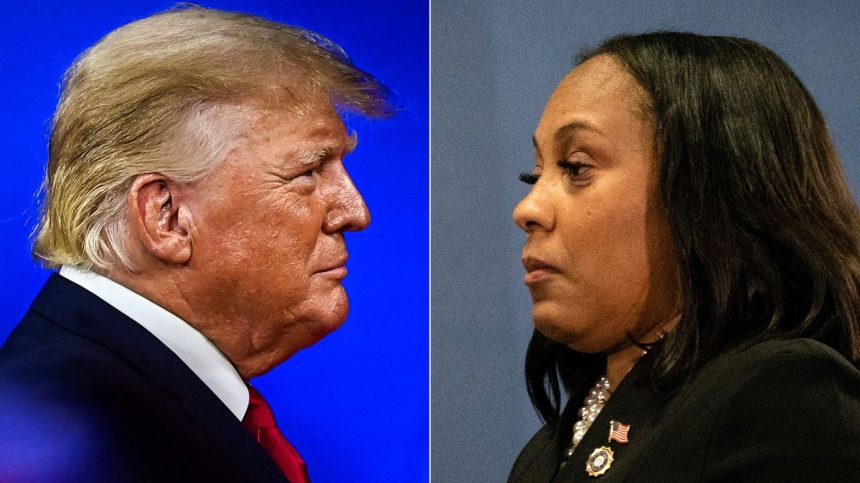As analysts have assessed the fourth criminal indictment of former President Donald Trump, this time in Georgia’s Fulton County, they’ve paid attention in particular to how he might end up getting pardoned in this case if convicted.
“Presidential pardon powers are limited to federal crimes — not state,” noted TD Cowen Washington Research Group’s Chris Krueger in a recent report to clients.
So while some of Trump’s Republican rivals for their party’s 2024 presidential nomination have already promised to use their pardon powers to help him in other cases, and he could try to pardon himself if his White House run is successful, no president could protect him in the Georgia case, which centers on his efforts to overturn the state’s results in the 2020 presidential election.
Trump, the frontrunner in the 2024 Republican presidential primary, turned himself in at Georgia’s Fulton County jail on Thursday evening. He was quickly released on a $200,000 bond and will now wait until an arraignment next month to enter pleas in this election-interference case.
Related: Trump indictment in Georgia: What does a RICO charge mean?
His first indictment, which came in March in a Manhattan case over hush-money payments, also involved state crimes, while his second and third indictments were in federal cases in Miami and Washington, D.C.
But a governor for New York state could one day pardon Trump if he’s convicted in the hush-money case. In Georgia, on the other hand, the state’s governor doesn’t have the power to grant pardons. Instead, they’re granted by Georgia’s State Board of Pardons and Paroles.
What’s more, the Peach State says anyone who wants to apply to that five-member panel for a pardon “must wait until at least five years have elapsed since the applicant was released from supervision (including probation and/or parole),” meaning Trump would face a long wait for a pardon if he were convicted in Fulton County.
That already has sparked some calls from Trump’s supporters for changing Georgia’s laws and giving more power to the current governor, Brian Kemp, a Republican who has often been at odds with Trump.
“I think that the legislature in Georgia needs to amend that statute and give Gov. Kemp the ability to pardon in this situation, because this is clear election interference,” said Mike Davis, president of the Article III Project, a conservative legal group, in a Fox News interview.
Besides the issue of pardons, the Georgia case differs from the other cases in that it’s the only one that has produced a Trump mug shot, and it could feature televised proceedings.
Related: Donald Trump’s mug shot, the new face of American political scandal
And see: Jim Cramer says new Trump indictment, not weak China economic data, is reason for depressed market sentiment
Read the full article here




